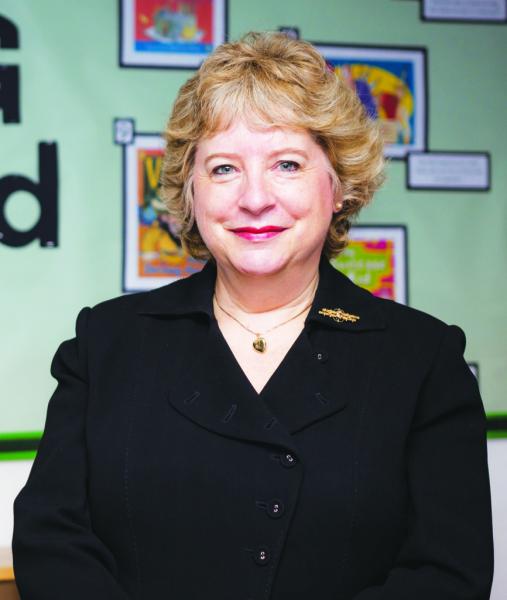Following her appointment as CEO, Professor Dame Alison Peacock shares her plans for the Chartered College of Teaching, including Chartered Teacher status, associate memberships and a commitment to evidence-based expertise.

With the recent appointment of Professor Dame Alison Peacock as the chief executive of the College of Teaching, the profession is moving ever closer to a having an organisation to support and nurture teachers working at all ages and stages of education. The Chartered College represents a very important moment in time for teachers and lecturers in England.
I caught up with Dame Alison to find out more about her vision for the College and the next steps that need to be taken.
 Alison: Thank you! It is an honour and a privilege to be appointed to lead this important work. The Chartered College is a brand new initiative, building on all the work of the College of Teachers.
Alison: Thank you! It is an honour and a privilege to be appointed to lead this important work. The Chartered College is a brand new initiative, building on all the work of the College of Teachers.
I am keen to listen to colleagues throughout education in England to understand how this new membership organisation can provide a resource for teachers that enables them to build professional knowledge in an inclusive climate of trust, agency and empowerment.
Alison: We have listened to these concerns and will open the Chartered College for membership later this term as an organisation that will welcome anyone with an interest in education to join as an associate.
We shall warmly welcome colleagues from Further Education and Higher Education alongside teachers and teaching assistants from all phases of Early Years settings and schools.
Alison: Yes. The scholarship strand leading to the award of Chartered Teacher is not yet written and we are consulting across all sectors to design this.
The entry level for application to become a Scholar studying for Chartered Teacher status will be at graduate-level and will only be open to those currently teaching children or young people.
Initially Chartered Teacher Status will be open to those currently teaching children aged 3-19. However, we want to work with those in FE to see how this can be extended.
Membership of the Chartered College will be primarily made up of those colleagues who wish to keep in touch with local and national initiatives, research findings and policy announcements.
We shall produce research digests that are situated within the classroom practice of those working across the education sector.
Alison: Our aim is to create an umbrella organisation that will enable teachers to access high-quality information and professional learning opportunities via signposting. In time, regional hubs will be developed to facilitate research engagement that is relevant and accessible to busy teachers wishing to enhance their impact still further through building pedagogical subject knowledge.
Associates will have access to a digital platform that over time will become the ‘go to’ resource for anyone wishing to debate and learn about the most up to date thinking in education.
We are an organisation that is non-political and with no fixed ideology. The role of the Chartered College will be to provide the intelligent voice of expertise and research, presenting existing evidence succinctly and powerfully.
Alison: I very much hope so.
The aim of the Chartered College is to build a collective endeavour to provide the highest quality opportunities for children and young people throughout education. The best way to achieve this is to share expertise throughout the profession.
As the Chartered College becomes recognised as an authoritative voice, our wonderful profession will gain confidence and even greater respect.
Alison: Professional learning is at the heart of the ambition of the Chartered College. We recognise that teachers are keen to have access to high-quality CPD. Although we will organise regional and national events we do not aim to become a provider of CPD.
However, the Chartered College will seek to work with teaching schools, networks of schools and colleges to respond to requests for information about sustained high-quality learning opportunities. We are also keen to work with HEI’s as we will be a research informed organisation.
We are consulting with teachers with regard to the introduction of Chartered Teacher status. This will be a rigorous professional learning spine that will enable greater sharing of classroom expertise across the country.
Chartered Teachers will become members of the Chartered College with voting rights and will ultimately be eligible to use the letters MCCT after their name.
Alison: Anyone with an interest in education will be able to join the Chartered College as an Associate. We aim to establish an organisation with an irresistible offer working in partnership with others such as unions, subject associations and learned societies.
Chartered College Associates will know from their earliest days as trainee teachers that membership will enable them to receive information and regional learning opportunities that will keep them inspired, informed and empowered to be the best teachers they can be.
Ultimately, when educational policy announcements appear in the media, there will be an informed and authoritative response from the Chartered College that will seek to ensure that all aspects of any initiative are understood within the context of the range of available evidence nationally and globally.
Alison: We hope to have our digital membership platform open by 31 October 2016 and from that point individual associate membership and institutional affiliate membership will be available.
Want to be kept informed about College of Teaching developments? Register your interest at www.collegeofteaching.org
What does evidence-based teaching really mean? Download the white paper Making the link to find out!